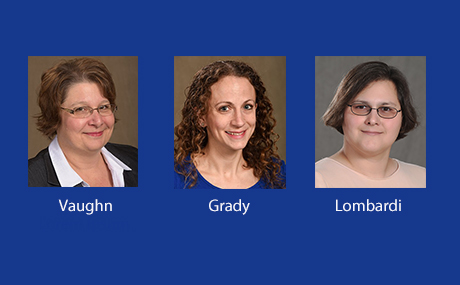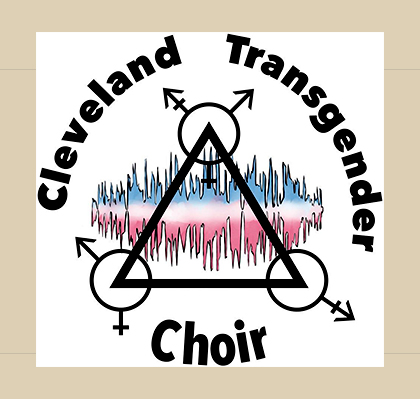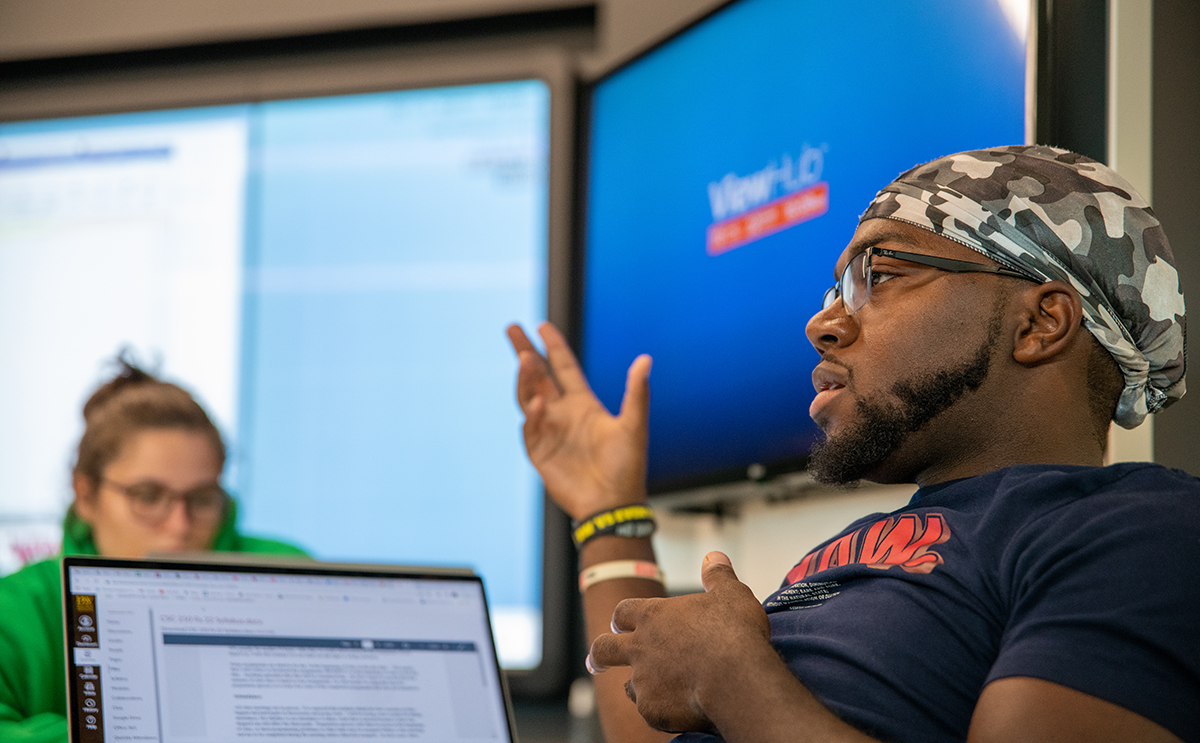Transgender individuals look to BW to assert their voices
The first time I saw her, she was dressed all in black - a high school student whose hoodie was pulled up over her head to cover as much of her face as possible. She clearly didn't want to be noticed. As the weeks went by, she began to let her guard down. She participated in our activities and started to dress like herself. I will never forget the first time she wore a skirt - she had clearly taken the time to get dressed up and carefully put on her makeup. The room erupted with joy when she arrived. We knew her true self had finally emerged.
-
Tracy
Grady,
director
of
the
Cleveland
Transgender
Choir
Ask
Tracy
Grady
about
her
role
at
BW,
and
she'll
talk
about
teaching
at
the
Conservatory
of
Music.
Her
eyes
will
light
up
as
she
talks
about
her
students
in
music
theatre
and
voice
performance.
But
her
passion
for
the
arts
extends
to
another
community
where
perfect
pitch
and
vocal
projection
aren't
needed.
 The
transgender
choir
is
just
one
of
the
many
programs
offered
by
Baldwin
Wallace
that
serves
the
needs
of
the
trans
community
in
Northeast
Ohio.
Along
with
voice
therapy
and
research,
the
opportunities
make
Baldwin
Wallace
a
place
of
understanding,
acceptance
and
support
where
individuals
can
feel
comfortable
and
welcomed.
The
transgender
choir
is
just
one
of
the
many
programs
offered
by
Baldwin
Wallace
that
serves
the
needs
of
the
trans
community
in
Northeast
Ohio.
Along
with
voice
therapy
and
research,
the
opportunities
make
Baldwin
Wallace
a
place
of
understanding,
acceptance
and
support
where
individuals
can
feel
comfortable
and
welcomed.
A Clinic Within a Clinic
Because voice is a societal gender cue, transgender individuals may find voice therapy beneficial. It can increase their confidence and comfort level within social situations and even protect them from violence.
"We want to give them the skills to be their authentic self," said Dr. Amy Vaughn, CCC-SLP, an assistant professor for both the undergraduate communication sciences & disorders major and two-year master of science in speech-language pathology (SLP) program.
Vaughn oversees the transgender voice clinic within the BW Speech Clinic. The clinic provides free therapy services to clients. It also provides outstanding clinical learning experiences for BW students to prepare them for rewarding SLP or audiology careers.
Trans people come to the clinic for different reasons, she explained. Some want to achieve a masculine or feminine communication sound and style. Others do it because they fear discrimination or becoming the victim of harassment or violence. Because insurance policies generally don't cover speech-language therapy to assist with gender affirmation, BW's Speech Clinic is a valuable community resource for a population that can be financially at-risk.
Putting Clients First
According to Vaughn, client goals are integral to what they do. "We ask them what they want to achieve. It may involve pitch, tone and vocal things like intonation, inflection and volume. It also might be nonverbal communication, such as facial expressions, posture and gestures," said Vaughn.
 Michelle
Guzowski
is
one
of
12
clients
who
attend
the
clinic.
The
introspective
Clevelander,
whose
talents
range
from
composing
music
to
bowling
four
300-perfect
games,
reached
out
to
BW's
transgender
clinic
18
months
ago
after
her
initial
contact
as
a
member
of
the
transgender
choir.
Michelle
Guzowski
is
one
of
12
clients
who
attend
the
clinic.
The
introspective
Clevelander,
whose
talents
range
from
composing
music
to
bowling
four
300-perfect
games,
reached
out
to
BW's
transgender
clinic
18
months
ago
after
her
initial
contact
as
a
member
of
the
transgender
choir.
"When I first attended the clinic, I told Amy I didn't really care about the pitch of my voice," acknowledged Guzowski. "But I discovered I DO care.
"Working with the clinic has allowed me to considerably raise the pitch of my voice and use more feminine attributes in the pattern and tone of my speech. I am significantly more comfortable with my speaking and conversational voice," she noted.
Sweet Sound of Music
In pre-COVID times, members of the Cleveland Transgender Choir, housed in the BW Community Arts School, would gather in person. First, they'd talk - to catch up on the happenings in everyone's life - then they'd unite in voice to transform a song into something magical. Sometimes the result was spectacular. Other times it was a work in progress.
"Our choir is not about vocal abilities. It is about community and making music together. Yes, it's always wonderful when we sound amazing, but that isn't our goal," emphasized Grady.
"Trans singers tend to have challenging experiences in traditional binary gender choirs. The most basic question of 'where should I stand' can be troubling to a trans individual. Also, the vocal range of a singer might not match their gender identity," she added.
 "Our
choir
gives
individuals
a
place
to
sing
in
whatever
range
is
comfortable
-
high
or
low.
Vocally,
our
choir
gives
singers
a
place
to
explore
their
voices
in
a
space
without
judgment.
To
my
knowledge,
we
are
the
only
trans
choir
associated
with
a
university
in
the
country,"
she
noted.
"Our
choir
gives
individuals
a
place
to
sing
in
whatever
range
is
comfortable
-
high
or
low.
Vocally,
our
choir
gives
singers
a
place
to
explore
their
voices
in
a
space
without
judgment.
To
my
knowledge,
we
are
the
only
trans
choir
associated
with
a
university
in
the
country,"
she
noted.
Moving Forward Through Research
"I've been doing trans research for many years now," explained Dr. Emilia Lombardi, chair of BW's public health and prevention science department. "Voice is very important to people. But it is an under-researched area."
An interdisciplinary research effort uniting Lombardi and Vaughn is currently examining the voices of trans people and their relationship with discrimination, social support and mental health outcomes. The goal is to better understand the role voice plays in the everyday experiences of transgender people and the effect vocal therapy can have in improving their lives.
"We've collected the data from 80 participants and are currently analyzing it," stated Lombardi. "We hope to use the results to create additional programming that can help trans people get to where they want to be, so they feel confident and comfortable communicating with other people.
"This is more than how a person sounds or looks while speaking. This is about giving individuals intrinsic fulfillment like self-esteem, joy and a feeling that they can be their authentic self to the world. Many individuals have waited decades for that ability. And it is our honor and pleasure to be part of this life-changing journey with them," she emphasized.



